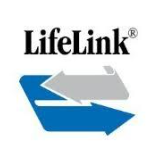Dive Brief:
- Digital health startups raked in more venture capital funding in the first half of the year, signaling the market is stabilizing following pandemic-era investment volatility, according to a report published Monday by Rock Health.
- U.S.-based digital health companies raised $6.4 billion in the first half of 2025, increasing modestly from $6 billion during the same period last year and $6.2 billion in 2023, the venture capital firm and consultancy said.
- Artificial intelligence contributed to the boost. Startups that used AI as a core part of their offerings made up a majority of digital health venture capital funding for the first time in the first half, accounting for 62% of the period’s funding total.
Dive Insight:
The first half of 2025 included some key developments that hinted the digital health sector — which saw record-breaking investment in 2021 followed by a funding slump in recent years — is seeing some momentum again, according to Rock Health.
For example, digital health firms raised $3.4 billion in venture funding in the second quarter alone, compared with the average of $2.6 billion each quarter since the first quarter in 2023.
The sector saw fewer deals in the first half, notching just 245 transactions in 2025 compared with last year’s 273. However, even with a lower number of transactions, the average deal size grew to $26.1 million from $20.4 million last year as investors poured more money into late-stage rounds, according to Rock Health.
Digital health sees modest funding bump in H1
Startups touting AI products also contributed to the investment increase. On average, AI-enabled firms raised $34.4 million per round, significantly larger than the $18.8 million raised by their non-AI counterparts.
Funding rounds by these companies made up the lion’s share of mega-deals, or fundraises worth over $100 million, as well. Overall, the first half of 2025 included 11 mega-rounds, on track to exceed the 17 large raises seen through 2024. Nine of the mega-rounds went to AI startups.
Public exits tick up after digital health dry spell
Meanwhile, after a long dry spell of digital health public exits, the sector saw some bright spots in the first half of the year.
Digital musculoskeletal company Hinge Health and chronic condition management firm Omada Health completed initial public offerings in May and June, respectively, in positive signals for the industry’s nearly dormant IPO market — just two digital health companies notched public exits in the past three years, according to Rock Health.
Still, most firms are exiting through mergers and acquisitions. More than 100 M&A deals closed in the first half this year, setting the sector on course to significantly outstrip the 121 digital health purchases recorded last year.














